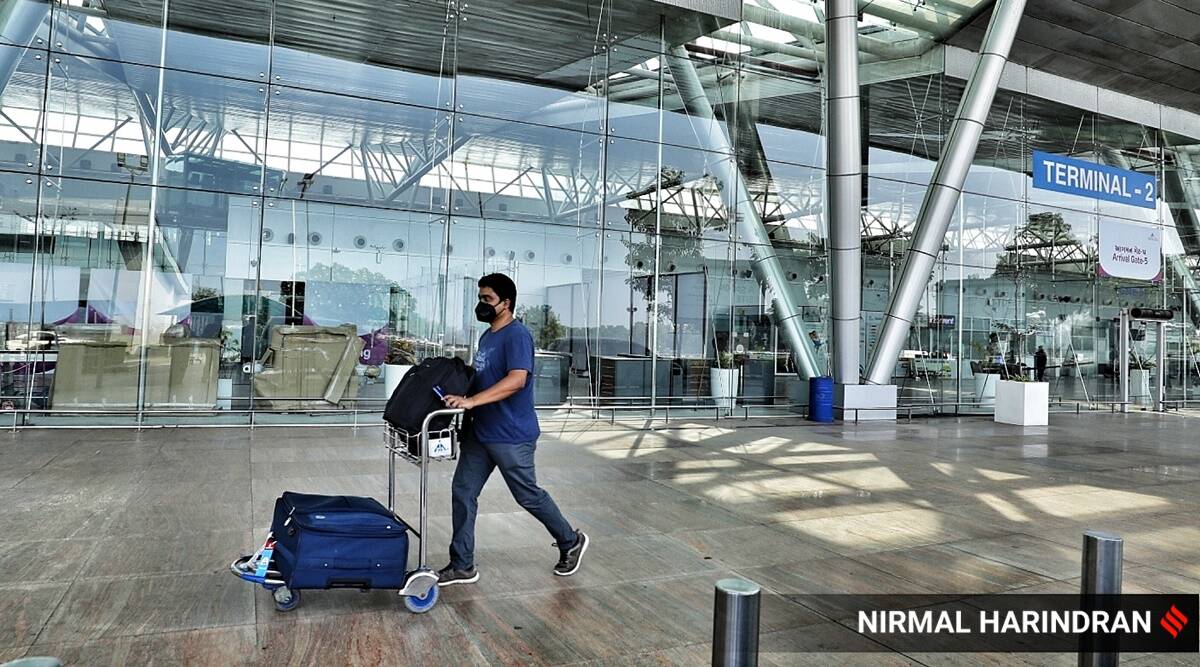 Some remedial policy measures on the part of domestic airlines can take care of specific needs of passengers, starting with providing options on the website to put in a request for different kinds of assistance based on passengers’ needs. (Express photo/Representational)
Some remedial policy measures on the part of domestic airlines can take care of specific needs of passengers, starting with providing options on the website to put in a request for different kinds of assistance based on passengers’ needs. (Express photo/Representational)Flying can be a joyful, exciting, or mundane experience depending on how often one has had the chance to fly, but rarely does one think of flying as an onerous mode of travelling. However, passengers with special needs often have a vastly different story to tell.
The discriminatory treatment meted out to a child with a disability by a domestic air carrier made it to the news headlines in May when he was stopped from boarding a flight. This provoked outrage across the country. The airline expressed regret following the furore on social media. Highly painful and discomforting as it must have been for the child, this incident has also brought out the lack of any concrete mechanism and chain of command on the part of domestic airlines in dealing with passengers with special needs. There are many such passengers with different needs having a hard time at airports, simply because there is no recognition that people with different needs and abilities also travel.
Let me briefly sketch the process that my sibling, who happens to be visually impaired, follows every time she travels. As a blind woman, choosing to fly alone, her request is fairly straightforward: To get manual assistance from a female staff member in negotiating the airport. But there is no provision to put in such a request at the time of booking tickets, leaving her with no option but to try and get her point across through repeated emails and calls to the airline company. Owing to her visual disability, she requires manual assistance with checking in and security clearance processes in order to board a flight. She also needs a female assistant to help her locate the facilities at airports and maybe a coffee shop or eating joint to grab a bite before she boards the aircraft. These are fairly simple things which most of us don’t plan while travelling. However, being blind means that she needs to put in a request with the elusive customer care service of the airline company, drop a mail a week in advance, send another reminder a day before her flight and then wait at the airline counter at the airport for a time ranging from 15 to 45 minutes. While waiting she is often told that the staff will take time to arrange for manual assistance, so it would be easier for her to use a wheelchair.
Typically, wheelchairs are listed as the sole solution for all kinds of mobility assistance required by passengers with special needs by domestic airlines. While wheelchairs are essential for people with locomotive difficulties, it is both illogical and insensitive to ask a blind person to use a wheelchair. After a lot of unnecessary delays, she either manages to get a female assistant or requests a fellow passenger for help. Similar discomfort awaits her at the destination airport. Her request for manual assistance in deboarding the craft and finding her luggage are usually left unresolved till the last minute. She is often the last passenger, left stranded in the craft, as she waits for help to deboard. Offers of a wheelchair are mostly made again at the time of deboarding. To add insult to injury, she is always informed that delays in assisting her will not be repeated and the airline assures her complete support in future travels.
Best of Express Premium
Some remedial policy measures on the part of domestic airlines can take care of specific needs of passengers, starting with providing options on the website to put in a request for different kinds of assistance based on passengers’ needs. Similarly, personalised calls in advance to passengers who have indicated any sort of disability at the time of booking by airlines would go a long way in smoothening their travel experience. Most importantly, there is a need for airlines to develop a proper protocol that can be followed by their employees in assisting those with special needs. It would be a good idea to have a small dedicated team of personnel, which can coordinate with the staff of different airports across the country to address the concerns of passengers with disabilities.
Even though it is too much to expect every passenger to be sensitised to the needs of fellow travellers with some disability, due courtesy and sensitivity on the part of the airline crew can reduce the discomfort for a disabled person trying to negotiate airports on her own. This requires imparting training to the staff and crew members at the time of initiation.
A realisation that people with different abilities need and wish to travel, and steps that ensure their requirements are included in designing responses will facilitate their mobility and allow them to gain more independence.
The writer is a research scholar at the Centre for the Study of Regional Development, JNU
- The Indian Express website has been rated GREEN for its credibility and trustworthiness by Newsguard, a global service that rates news sources for their journalistic standards.

